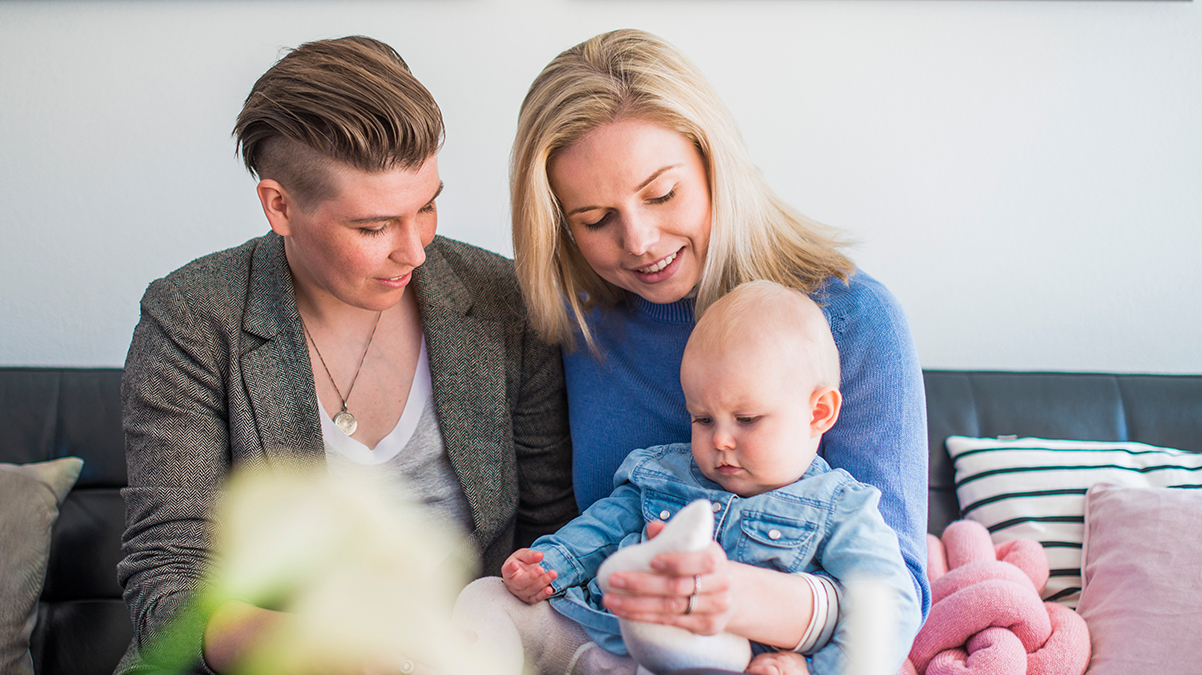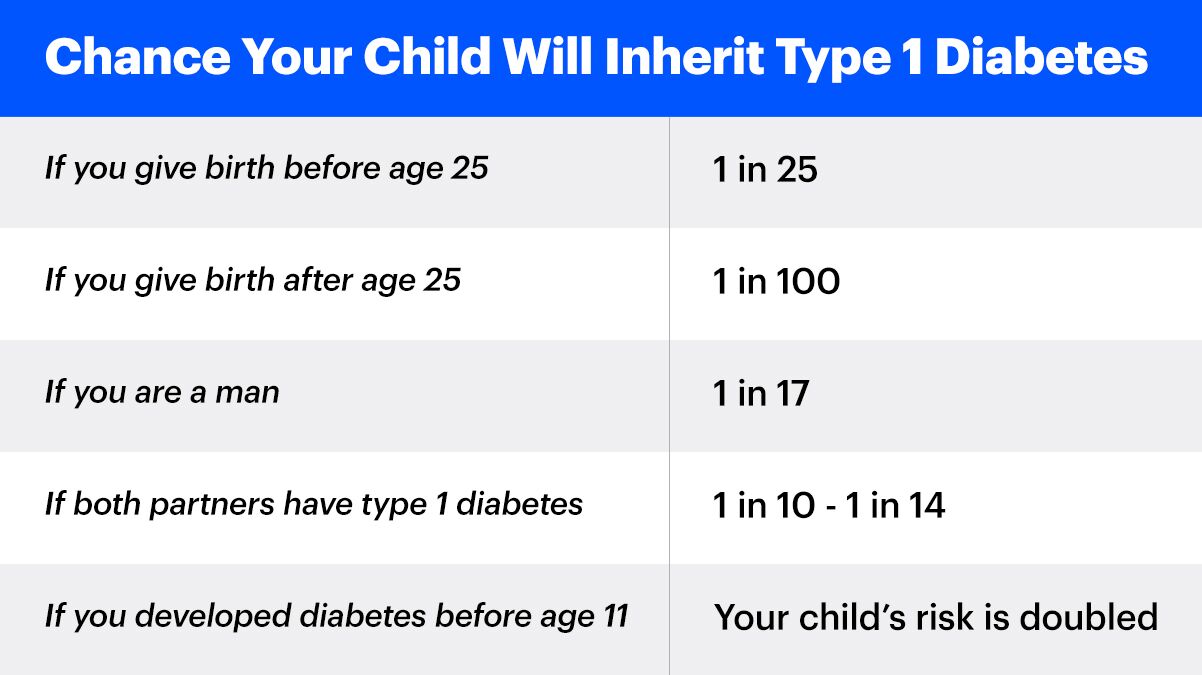Will I Pass on Type 1 Diabetes to My Baby?
It is natural for people with type 1 diabetes (T1D) to worry about the possibility of passing the disease on to their children. Reassuringly, the disease does not develop in a majority of people with genetic risk factors. But that said, your child will still have a greater risk of developing type 1 than the general population—on average, this risk is about fifteen times greater for someone with a relative who has the disease.
Besides having a parent with the disease, your child’s risk of inheriting type 1 can be impacted by additional factors like:
- Gender
- Race/ethnicity
- Where you live (the disease is more common in countries further from the equator)
- How old you were when you developed type 1 diabetes
- The presence of diabetes-related autoantibodies in your body
- Whether one or both parents have the disease
- Your age when the baby is born (if you are a woman)
- Having certain immune system disorders in addition to type 1

Source: ADA
It is important to remember that one’s genetic makeup is not the only factor at play. In fact, 80 percent of people with type 1 diabetes have no family history of the disease.
Researchers are still trying to understand exactly how genes and environmental factors interact to determine a person’s risk of developing type 1 diabetes—for example, certain viruses that target beta cells, causing the body’s autoimmune response to go awry and attack healthy cells. According to ADA, early diet may also play a role in the development of the disease; it is less common in people who were breastfed and in those who began eating solid food at later ages.
Will the Disease Develop as My Kids Grow Up?
The question of whether your child has type 1 diabetes will always linger in the back of your mind as you watch them grow up. When they are thirsty and drinking more than usual, you’ll wonder if it could be type 1 diabetes or if they’re just dehydrated from playing outside on a hot summer day. When they wake up to use the bathroom more than once in the night, you’ll have that question in the back of your head.
Antibody tests may help predict the development of the disease before symptoms appear. There are families in which none of the children develop type 1 diabetes, some families in which all of the kids are diagnosed, and some families where some kids have type 1 diabetes, and some do not. To learn more about your family’s risk, visit TrialNet.
Signs of Type 1 Diabetes in Kids
Of course, as a parent, you hope your child does not develop type 1 diabetes. However, it is important for you to be aware of the symptoms of the disease in children, so that you can recognize them early and get your child tested.
- Frequent urination and thirst: Having high blood sugar eliminates fluids from the body, which will lead to increased thirst and the need to take more bathroom breaks throughout the day.
- Fatigue: If your child is constantly tired, it may be a sign that their body is having trouble turning sugar in the bloodstream into energy.
- Changes in vision: High blood sugar levels can lead to blurred vision or other eyesight problems.
- Fruity smelling breath: If your child’s breath smells fruity, it could be a result of excess sugar in the blood.
- Extreme hunger and unexplained weight loss: When your child’s muscles and organs aren’t receiving enough energy, it can trigger extreme hunger. And sudden weight loss—especially if they are eating more—should not be ignored.
- Unusual behavior: If your child seems more moody or restless than normal—and it’s in conjunction with the symptoms above—it could be cause for concern.
The signs of type 1 diabetes may differ slightly for kids of different ages. If you have a toddler or teen, learn more about the symptoms they might experience.
